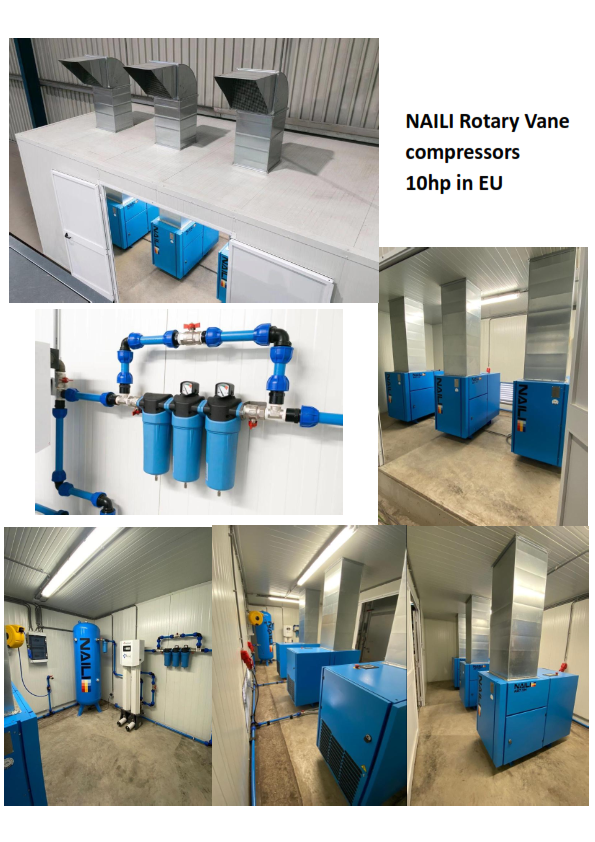
Industrial air compressors are versatile devices that provide pressurized air for a wide range of industrial processes. When selecting an air compressor for an application, it is important to ensure that the equipment selected will provide the desired results while keeping maintenance and operating costs low.

Paint spraying equipment - to vaporize paint so that it can be applied to parts and products
Pneumatic tools - pneumatic tools are preferred over electric tools because they are lightweight and easy to maneuver
Pneumatic lifting equipment - pneumatic hoists can be used for a variety of lifting operations
Shot Peening - air is utilized to propel grit or pellets for blasting and cleaning operations
Cooling and heating - air is used in industrial heating and cooling processes by generating large quantities of hot and cold air in vortex tubes
Cleaning - Air is used for cleaning processes in manufacturing facilities.
Mobility requirements (stationary or portable compressor)
Environment (indoor or outdoor use)
Type of drive system
Required cubic feet per minute (cfm), pounds per square inch (psi), and horsepower (hp)
Tank size
Cost
What is an industrial air compressor?
Industrial air compressors are powerful and efficient compressors with pressures in excess of 100 psi and power in excess of 200 hp.These heavy-duty units are made with high-horsepower motors and rugged components designed to operate at much higher pressure levels than their consumer-grade counterparts. Examples of air compressors used in industrial applications include centrifugal compressors, scroll compressors, turbine air compressors, and rotary vane pumps. These units perform a number of essential tasks in demanding industrial applications, from powering pneumatic tools in manufacturing plants to supporting critical oil and gas operations.
Given the power requirements of the applications they support, industrial air compressors often require a significant upfront investment. Properly sizing the equipment to the application's needs is critical to achieving optimal performance while minimizing maintenance costs and unplanned downtime.
How Do Industrial Air Compressors Work?
Much like an automobile engine, most industrial air compressors rely on the movement of a piston to compress the air inside the equipment. Powered by electricity, natural gas, or diesel fuel, the piston presses down on the air entering the compressor, and the air is then moved to a pressurized storage tank underneath the unit. The amount of compressed air a unit can store is indicated by its cfm rating.
What size air compressor do I need?
To select the right size air compressor, it is important to understand your airflow requirements and the amount of pressure needed to perform a given task. For example, imagine a block of wood that must be moved a certain distance on a surface. If 90 psi is the minimum pressure needed to move the block, a compressor that does not provide equal or greater intensity will not be suitable for the task. An improperly sized air compressor will not only not provide the capacity needed to support the operation, but it will also add to the cost by wasting energy.